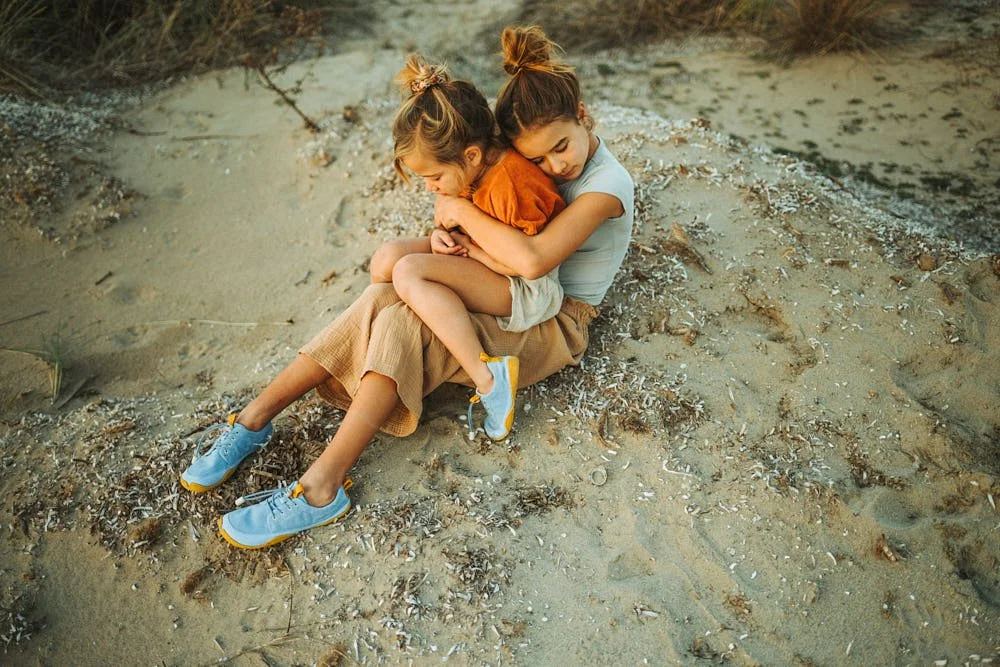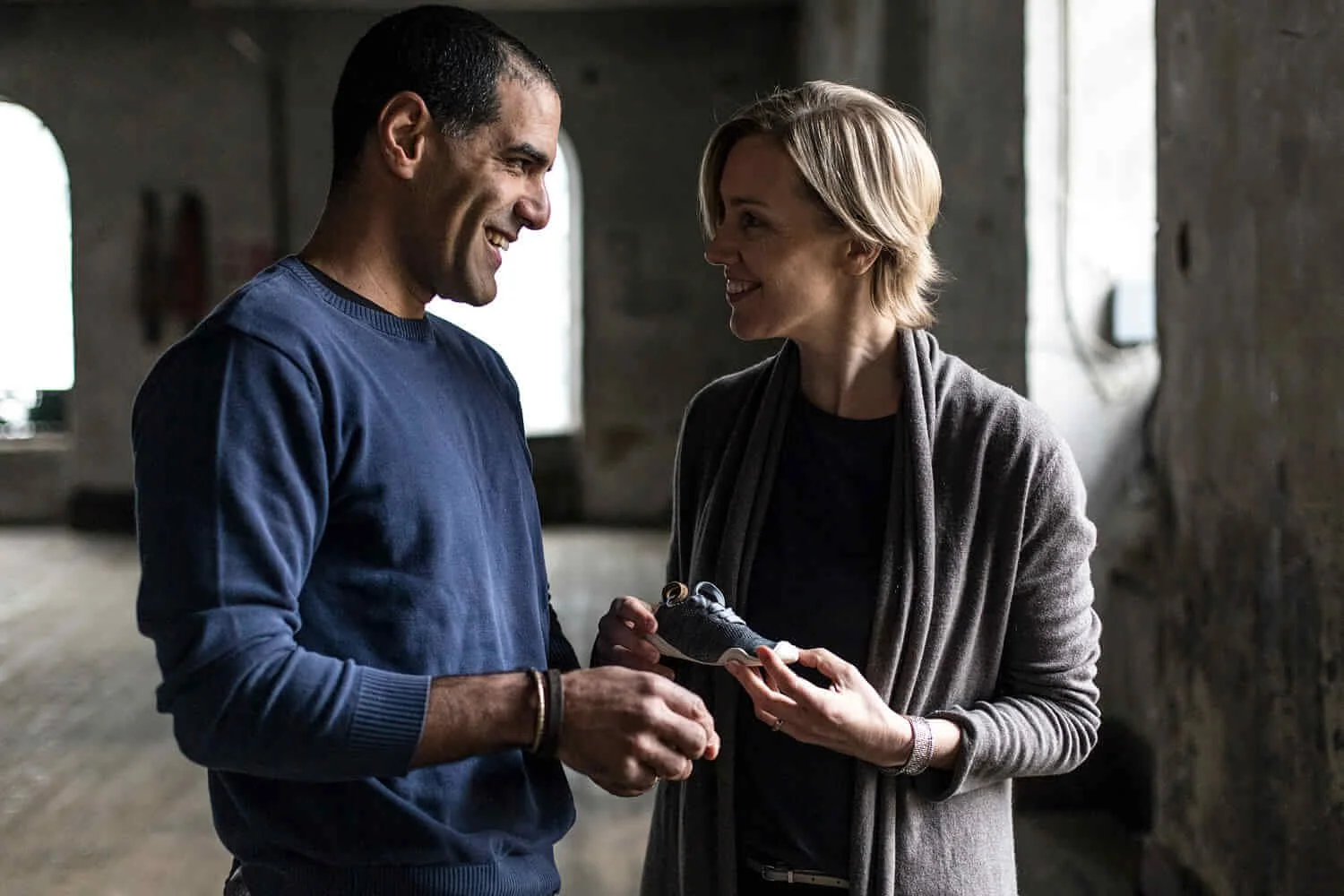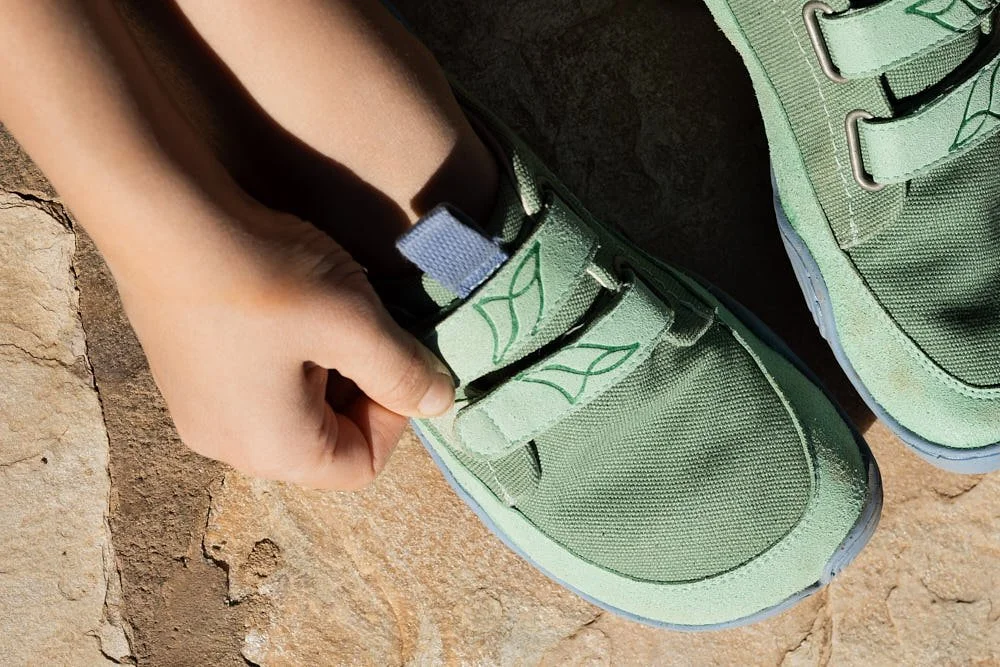WILDLING
*Ten Years Barefoot in Motion
written SARAH ARENDTS
It all began with a step. Ten years of Wildling. Ten years barefoot, from the very start. Anna and Ran Yona founded the label in Engelskirchen in 2015, reimagining what shoes could be. Shoes that feel like no shoes at all. Unrestricted, agile, radically minimal.
The idea did not emerge from a business plan, it emerged from children running barefoot across tiles, meadows, sand. When the German climate demanded sturdier shoes, there were no models that gave the same freedom. So Anna and Ran built them. A wooden last shaped from their daughter’s foot, a designer sketching from afar, a small factory in Portugal producing the first prototype. A crowdfunding campaign brought the first pairs to life. And quickly the question arose: could this be done for adults too?
Anna and Ran
photo by Dirk Bruniecki
Today, people across the world wear Wildlings. The bestseller Tanuki alone has been sold over half a million times. Yet Wildling has never measured success in numbers. Success here means circularity, regionality, radical transparency. It means partners who want to reshape the textile world from its very roots. Three partnerships embody this vision: Nordwolle, Virgo Coop, and Itoitex. Each one tells of a future built from old knowledge, reimagined. Nordwolle begins in the pastures of northern Germany. Hardy breeds like the Pomeranian Landsheep graze the fields, preserving biodiversity. Their wool was once dismissed as too coarse, too rough. Now it is washed, combed, spun. No dyeing, no bleaching. A material that warms, breathes, and speaks against synthetic fibers, against microplastics, against faceless supply chains. Since 2015 Wildling has used Nordwolle, crafting models like Kindur entirely from it. When shoes are returned, the wool is recycled — a closed loop, rare in footwear.
Virgo Coop works in southern France. Three founders, an old weaving mill, a young team. Reviving the craft of European hemp and linen processing, long abandoned. Machines designed anew prepare the fibers into fine yarns. Hemp grows with little water, no pesticides, enriching the soil as it matures. Wildling invested in Virgo’s machines, helping save the weaving mill. Today, Nordwolle sends fibers to Virgo, and Virgo weaves fabrics in return. A regional cycle, sustaining knowledge once thought lost.
And then Itoitex. Two emails crossing paths — one from Germany, one from Japan. Anna Yona and Mr. Itoi recognized a shared possibility in Washi paper. Traditional Japanese paper, refined into yarn. Wrapped around a polyester core, woven into fabric. Lightweight, breathable, antibacterial. From it came the Tanuki. A shoe with a thin, flexible sole, inspired by Japanese Tabi footwear. A design that connects the body to the ground, it´s a symbol of cultural exchange and the courage of improbable ideas.
Anna and Ran
photo by Sarah Pabst
photo by Lisa Pitz
Ten years of Wildling means ten years of radical textile research. Wool from Rügen, hemp from southern France, paper yarn from Japan. Each material is part of a larger story. A story about circular economies, collective innovation, and textile self-determination in Europe and beyond. A story about footwear as a vessel of vision, carrying ideas of how to live with the earth.
Wildling remains barefoot. From the beginning. And for the future.
discover more www.wildling.shoes





